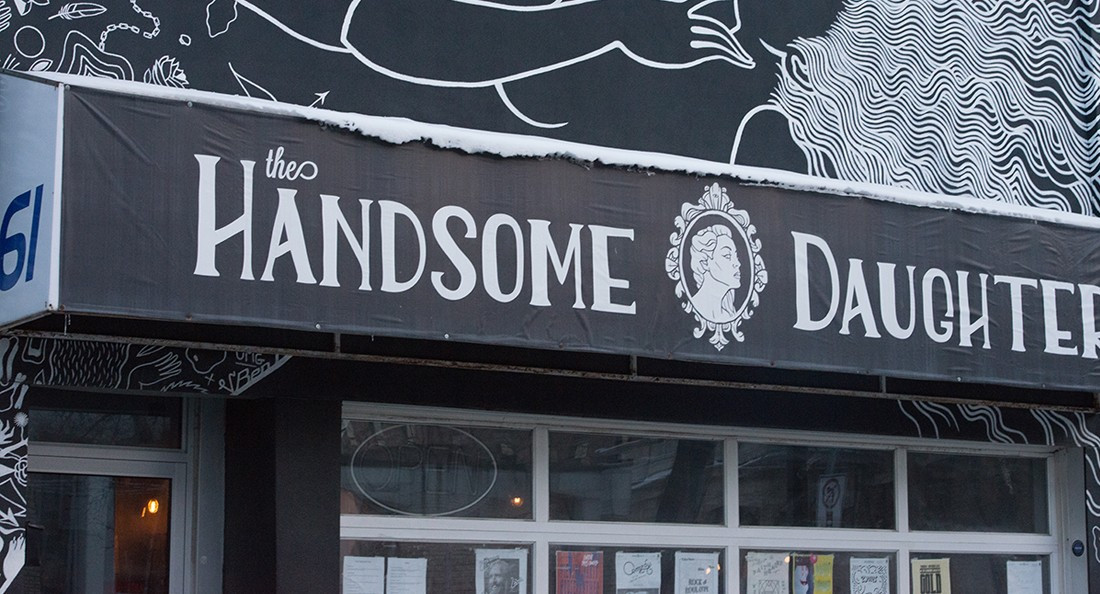Accessibility is more than a buzzword
The music industry could do more to make venues accessible
The current buzzword vibrating across the music scene is the term accessible. It’s mentioned in Facebook events for shows, on venue pages and used haphazardly across the industry.
However, promoters and artists in Winnipeg, regardless of their willingness to label a space accessible, often fail to accurately describe how people will interact with the space in terms of disability.
Accessibility extends beyond the access level of a particular venue. For example, The Handsome Daughter has a ramp to access the bar, as opposed to stairs. However, beyond the ramp, they fail to have any accommodations in the washrooms for folks who use mobility aids. A more accessible washroom would have a push button to open the door, a larger stall with a rail, braille on the washroom sign, and several other components.
Although this venue may be more accessible than Forth, which has seven steps to enter, it is irresponsible to claim total accessibility of a space.
Accessibility for many folks is more than just the social credibility of playing in a space that has some accommodations. When promoters, artists and venues claim that spaces are accessible, and then folks arrive to find out that they cannot use the washroom, or stay for the show if there are no chairs, then the term is misappropriated.
Failing to truthfully explain the accommodations of a space is an act of violence against the community, as it prevents meaningful involvement. Artists, venues and promoters need to take serious responsibility and ownership for assessing whether or not a space will be accessible for a diverse audience of folks.
In terms of larger venues for shows, Crystal Rondeau points out that “wheelchair seat tickets are priced as the most expensive ticket available, which is ridiculous, because people with disabilities make up a lot of the population that’s poor.”
Pricing tickets higher for folks with disabilities creates more barriers for those who already have increased costs of living in terms of transit, health care, pharmaceuticals – not to mention that the community is chronically underpaid and underemployed.
It’s important to consider who is making claims of “accessibility.” All too often, the accessibility disclaimers at the bottom of events are made by able-bodied folks, with no prior experience doing accessibility audits. Accessibility audits are done by several organizations in Manitoba, primarily the Manitoba League of Persons with Disabilities and the Independent Living Resource Centre.
It’s also imperative to look at representation within the music industry. Rondeau says that she does not know “anyone who is disabled and prominent in the music scene.” In the music scene, and across major labels, there is a lack of representation of persons with mobility and visible disabilities. When there are few people in the community who have disabilities, this can feed into the acceptance of claiming spaces are accessible when in reality they are not.
One of the major barriers for persons with disabilities to access the music scene is the stage layouts at many venues. The Good Will Social Club, The Pyramid, The Garrick, The Handsome Daughter, Forth, Times Change(d), and many other venues across the city have steps or other barriers to accessing the stage.
The music industry needs to hold itself accountable for the usage of the term “accessible” and begin making space for audiences and artists with disabilities. The industry can begin by paying to get accessibility audits, by implementing the changes requested in the audit and by prioritizing musicians and technicians with disabilities. If businesses can restructure budget to prioritize access, that will allow for more meaningful participation in the music industry.
Megan Linton is the vice president external affairs for the UWSA. She cares deeply about equitable access, doughnuts and soft punk.
Published in Volume 72, Number 11 of The Uniter (November 23, 2017)








